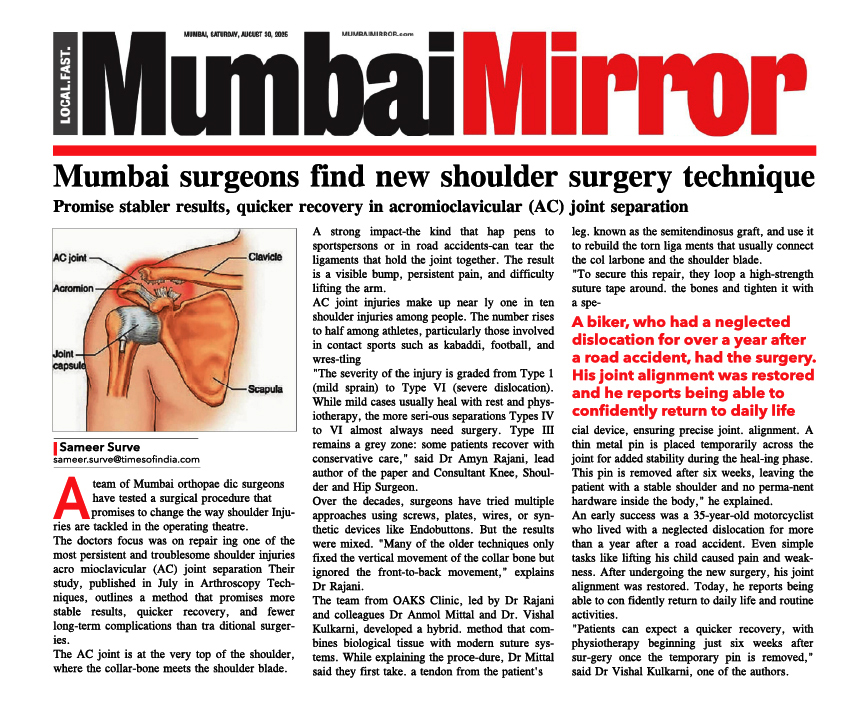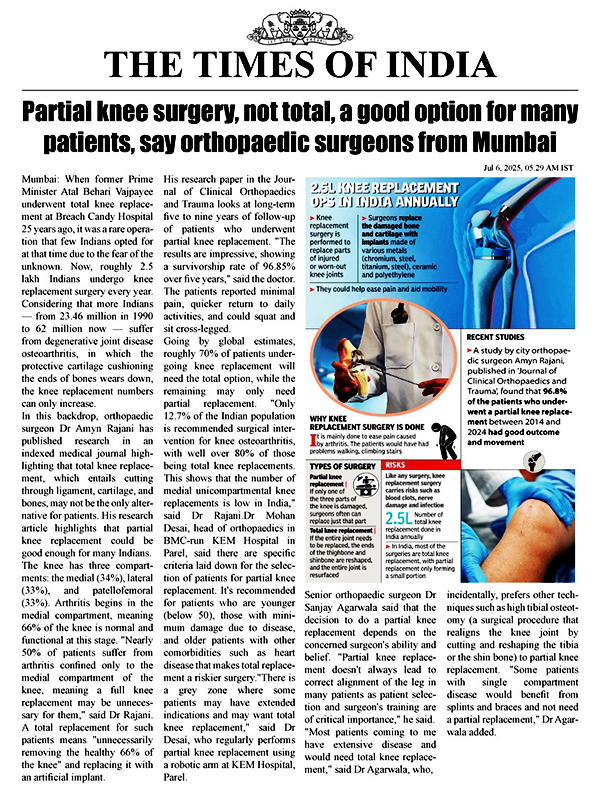A joint is formed when two or more bones meet without fusing with one another, and help in performing body movements. Free movement is one of the primary functions of the joints in the body. Any disorder that prevents this from happening, renders the joint dysfunctional. There are several orthopedic treatment options to restore normal functions of joints. One such option is joint replacement surgery.
What Is Joint Replacement Surgery?
Joint replacement surgery is an orthopedic surgical procedure performed to remove the diseased joint from the body, and replace it with an artificial prosthesis. The prosthesis is made of strong metal alloys, ceramic or plastic which do not have any harmful interaction with other body tissues.
The artificial prosthesis is designed to look exactly the joint that needs to be replaced. The new joint will also perform all the normal functions that the diseased joint. Joint replacement surgeons in Mumbai use minimally invasive techniques like arthroscopy to perform this surgical procedure. These techniques allow to reduce the duration of surgery, post-recovery period and chances of complications.
During the surgery, the new prosthesis is placed at the site of the original joint. It is surgically attached to the muscles, tendons and other tissue which supports the joint. It takes about 4-6 weeks for complete recovery after undergoing joint replacement surgery. The entire joint (total joint replacement) or only the diseased portion of the joint (partial joint replacement) may be replaced during the surgery.
What Are The Indications Of Joint Replacement Surgery?
Every complaint of joint pain or swelling does not require surgical treatment. Infact, most of the joint disorders are treated with medicines and allied treatment methods, in their primary stages. However, some cases of joint pain cannot be treated with medicines due to the nature of complaints. Given below are some of the indications of joint replacement surgery.
● Progression Of Disease Joint complaints usually take about 2-3 weeks to subside completely, sometimes even without. Some patients may experience progressive worsening of symptoms over a period of time. Such cases are suitable for joint replacement surgery.
● Ineffective Medicinal Treatment Pain, swelling and stiffness are among the most common joint complaints. They often respond well to pain relief medicines, anti-inflammatory drugs and steroids. However, if the symptoms do not respond to proper medical care, surgical intervention in the form of joint replacement surgery may be needed.
● Autoimmune Joint Disorder Autoimmune disorders of joints may cause widespread inflammation and degeneration within the joint. It may not be possible to control the damage with medicines only. Joint replacement surgery may be involved in such cases.
The knee joint, hip joint and shoulder joint are more likely to require joint replacement surgery than other joints in the body. Arthroscopic knee surgery in Mumbai is one of the most widely performed joint surgeries.
If you, or anybody you know, seem like a potential candidate for joint replacement surgery, visit a renowned orthopedic surgeon in Mumbai for medical consultation and advice.






thank you for giving useful information about Joint Replacement Surgery.this blog is very important for reader.
I really like and appreciate your blog article.Really looking forward to read more. Keep writing.